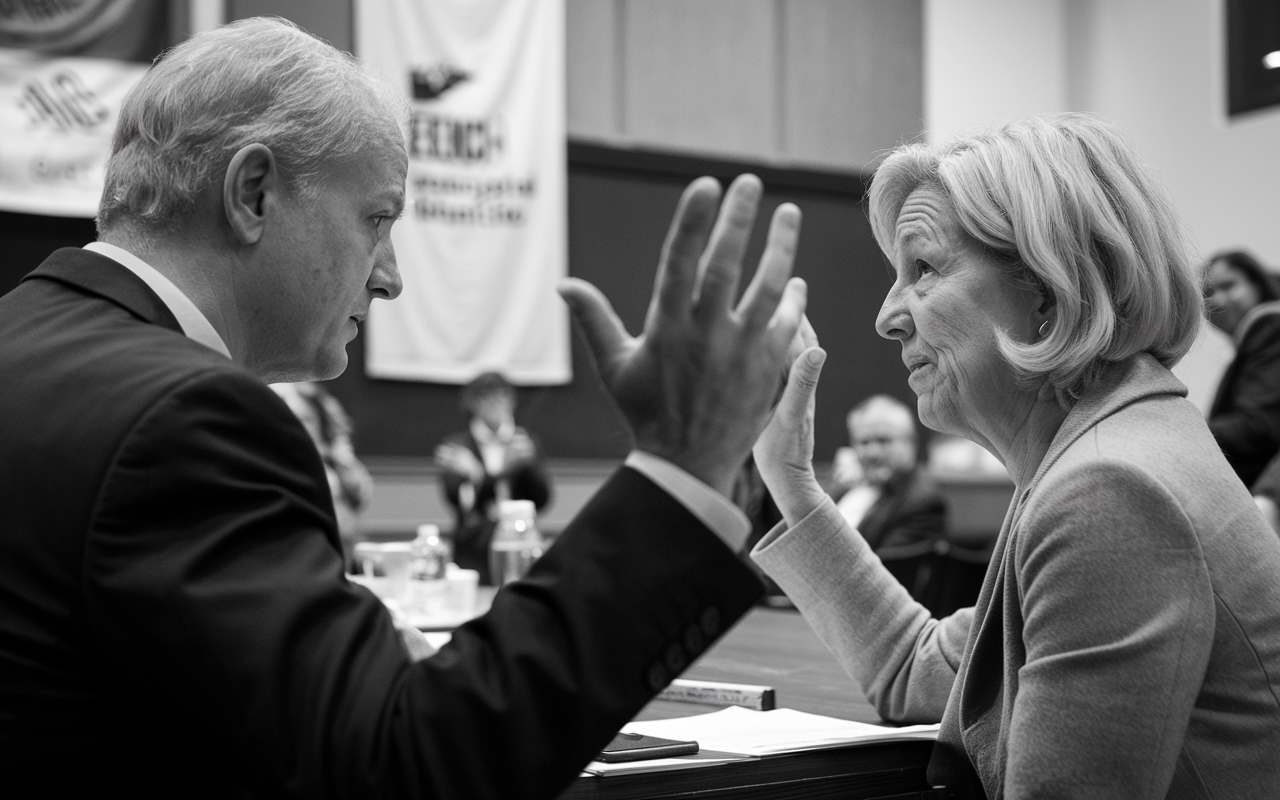In the high-stakes world of politics, disagreements are inevitable. But as Dale Carnegie wisely observed in How to Win Friends and Influence People, “You can’t win an argument. You can’t because if you lose it, you lose it; and if you win it, you lose it.”
Arguments may score points in debates, but they rarely change hearts or minds. Instead, the key to winning over opponents lies in finding common ground, listening with empathy, and fostering constructive dialogue. This post explores how to avoid arguments while influencing others effectively in political campaigns and leadership.
Why Arguments Don’t Work
1. They Create Defensiveness
When people feel attacked, they double down on their beliefs instead of reconsidering them.
2. They Damage Relationships
Even if you win an argument, you risk alienating the person you’re trying to persuade, making it harder to build trust in the future.
3. They Shift Focus Away from Solutions
Arguments often focus on assigning blame rather than addressing the issues at hand, wasting time and energy.
Strategies to Avoid Arguments
1. Seek Common Ground First
Find areas of agreement before addressing points of contention. This creates a foundation of mutual understanding and reduces defensiveness.
- Example: “We both care deeply about creating a safer community—let’s talk about how we can achieve that together.”
2. Listen Actively and Empathetically
Focus on understanding the other person’s perspective instead of planning your rebuttal.
- Tip: Use phrases like, “I see your point,” or “I understand why you feel that way,” to show you’re listening.
3. Ask Questions Instead of Making Statements
Encourage dialogue by asking open-ended questions that invite reflection and discussion.
- Example: “What do you think are the biggest challenges we need to address in our schools?”
4. Acknowledge Valid Points
Admitting when the other person has a good point demonstrates humility and builds credibility.
- Example: “You’re right that we need to focus on reducing waste in government spending.”
5. Avoid Absolutes
Using words like “always” or “never” can make your argument seem overly rigid and alienate your audience. Stick to balanced, fact-based language.
- Example: Instead of, “You’re always against change,” say, “I understand you have concerns about this proposal.”
Turning Disagreements Into Opportunities
1. Frame the Conversation Around Shared Goals
Reframe disagreements by focusing on the larger purpose you both care about.
- Example: “We may have different ideas on how to fix this issue, but we both want what’s best for our community.”
2. Use Stories to Build Understanding
Personal stories can humanize complex issues and create emotional connections that bridge divides.
- Example: “Let me tell you about a family I met who’s struggling because of this policy—it really opened my eyes to the urgency of this issue.”
3. Propose Collaborative Solutions
Invite your opponent to work with you on finding a solution, emphasizing teamwork over conflict.
- Example: “How can we address your concerns while still moving this project forward?”
Real-World Examples of Avoiding Arguments
1. Abraham Lincoln’s “With Malice Toward None” Approach
During the Civil War, Lincoln focused on reconciliation and unity, avoiding divisive rhetoric even in the face of fierce opposition.
2. Ronald Reagan’s Optimistic Style
Reagan rarely engaged in combative arguments. Instead, he used humor, stories, and a focus on shared values to win over critics.
3. Barack Obama’s Listening Tours
Obama often hosted listening sessions in communities, prioritizing understanding over argumentation to build trust and support.
How to Apply These Strategies in Campaigns
1. During Debates
Focus on addressing the issue rather than attacking your opponent. Frame your responses in terms of shared goals and constructive solutions.
2. When Speaking with Voters
If a voter disagrees with you, listen carefully, acknowledge their concerns, and share your perspective without dismissing theirs.
3. In Internal Campaign Discussions
Encourage collaboration and avoid finger-pointing when addressing challenges within your team.
The Benefits of Avoiding Arguments
- Stronger Relationships: Constructive conversations build trust and respect.
- Better Problem-Solving: Focusing on solutions leads to progress instead of stalemates.
- Increased Influence: People are more open to your ideas when they feel respected and understood.
Final Thoughts
In politics, it’s easy to fall into the trap of arguing to prove a point. But as Dale Carnegie reminds us, “The only way to get the best of an argument is to avoid it.” Instead of trying to win battles, focus on building bridges. By seeking common ground, listening with empathy, and fostering collaboration, you can inspire real change and earn the respect of voters and opponents alike.
Ready to lead with diplomacy and influence? At Next Generation Political Consulting, we help candidates develop communication strategies that build trust and foster constructive dialogue. Let’s create a campaign that brings people together.

